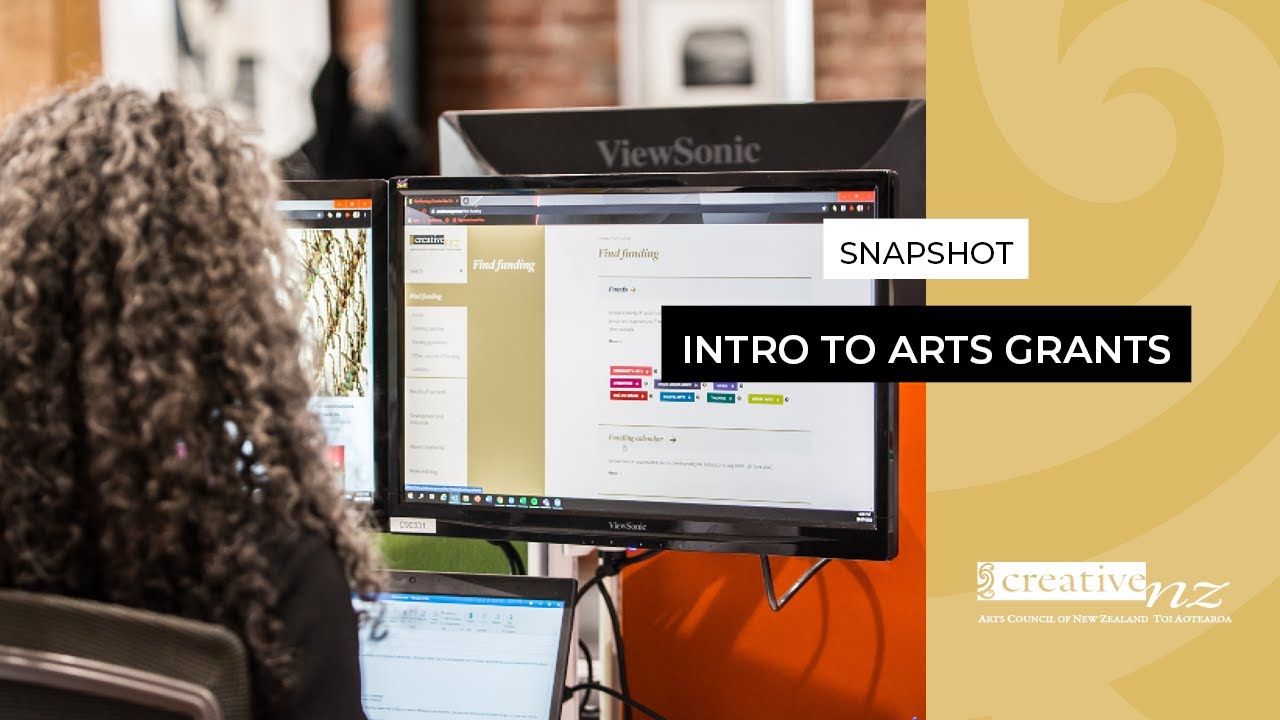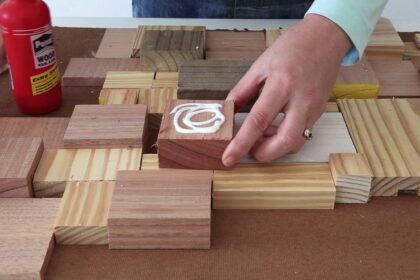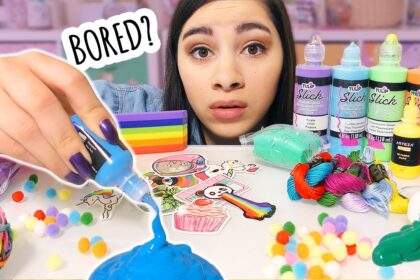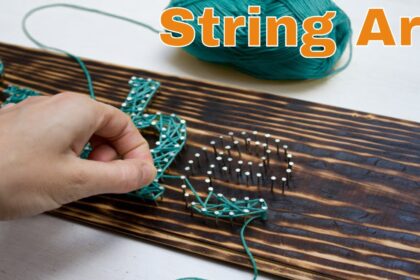Grants can be an excellent source of funding for your art project. You can find grants with specific requirements and unrestricted funds from local foundations to government agencies. If none of these options work, try approaching large foundations to see if they have a grant that will fund your project. If they don’t, move on to the next opportunity and continue your research. But before you approach a large foundation, make sure you research all your funding options.
Grants with specific requirements
If you are looking for a grant to support your art project, you may have several options to consider. You can apply for grants that provide general support to artists, which can cover the costs of studio rent, supplies, and even keeping employees on the payroll. Then there are the specific requirements of art projects. Here are some examples of grant opportunities and criteria for applying for them. All of them will benefit artists in a different way.
These grants can range in amount from $10,000 to $100,000, and all require a match of at least one-to-one. They will evaluate your project on the merit of its artistic quality and its merit. Those factors include the quality of artists and arts education providers, the quality of the works of art and the art produced by the project, and the organization’s mission. Other criteria include the ability to carry out the project, its resources, and its personnel qualifications.
Some institutions require applicants to raise money for their project before they apply. This requirement helps them ensure that their projects have a solid financial backing. For example, Fractured Atlas requires fiscally sponsored projects to raise at least $1,000 before they can apply for a grant. However, this doesn’t mean you can use the money to buy a beer or go on a bar crawl. So make sure to plan accordingly.
There are many other sources of funding for art projects, including crowdfunding. These online campaigns ask people to donate money to your project, but a grant application requires you to make a specific case. The application also includes a formal pitch. This can be much different from a crowdfunding campaign, which asks friends and family to contribute to your art project. So, before you start your fundraising campaign, you must understand which funding sources are best for your art project.
Grants with unrestricted funds
A grant database called Grants with Unrestricted Funds provides cultural producers and organizations with information about various funding sources. This database is updated regularly and contains numerous grant programs, ranging from small grants to large ones. Many of these grants are intended to support a specific project, such as an artist’s cross-country tour. As such, they aren’t appropriate for regular expenses, such as food and shelter.
To be eligible, applicants must have a bachelor’s degree or four years of professional experience. To be considered, an applicant must also have a track record of making art, including exhibitions and publication. In addition to unrestricted funds, the fellowship package will cover round-trip travel to the host country, room and board, and health benefits. Additional expenses may include tuition and educational courses. The organization seeks to fund projects that challenge existing power dynamics.
This grant program supports emerging, mid-career, and established artists working on social and environmental issues. The project must explore the intersection of art and social justice and address issues related to women. Award recipients receive a $10,000 honorarium and budget for project expenses. They must submit their projects to one of the program’s regional offices in the United States. These grants are intended to support artists who want to take their careers to the next level.
A grant database like Philanthropy News Digest will provide access to the latest RFPs and awards opportunities. To help individuals with their work, the Puffin Foundation and Artist Relief Project are two examples of national arts grantmaking organizations. For those interested in a crowdfunding option, there are many options available. The National Network of Fiscal Sponsors offers a comprehensive guidelines list for applicants to follow. Chicago Filmmakers provides a grant for noncommercial film projects.
Grants with specific requirements in a city
Before you apply for a grant, you should understand the requirements for applying for a grant in your city. In most cases, you must present a report detailing the impact of your project on the arts and culture of the city. In some cases, you can also earn additional points by showing how your project will serve non-local audiences. Grants with specific requirements for art projects in a city are available from many sources.
Before applying for a grant, you must first identify your budget. Some grant funds have stricter budget requirements than others. If you do not have the funds to cover all of your expenses, you may have to seek other funding in order to make your project a success. Make sure to include all relevant details, such as the estimated number of people you will need to work with to execute your program. Moreover, you must provide information that will convince other grant-giving institutions that your project will be successful.
Once you have determined the amount of money you will need, you should submit your application for an Arts Grant. You can also apply for an Individual Artist Grant. The application process takes about three months and will be reviewed by the Visual Arts Commission. Once approved, the project must be completed by December 31, 2022. The funding will be awarded after an application is approved by the ECAC. And if you are not approved, you may want to reconsider your project.
Before you apply for an ACT grant, make sure to review the application criteria. The guidelines are strict. The funds available to applicants must be at least three hundred dollars. If you need more than three thousand dollars, you should look elsewhere. You may also be eligible for a grant for an event. For events, in-kind donations are not considered cash income but should be noted in your budget. Don’t forget to include the administrative and artistic fees for artists and production staff.
Grants from foundations
There are several types of grants available to artists. Many foundations support individual artists, but a few are open to all types of work. One grant opportunity is the Judy Chicago Art Award, which rewards innovative students and scholars who are advancing the arts through innovative scholarship. The application process requires applicants to highlight women’s historic contributions through their work, as well as to use the extensive materials available through the Judy Chicago Research portal. To apply, applicants must submit a proposal, as well as all required archive materials.
Other types of grants are available, ranging from small amounts to large amounts. Many are for specific projects, while others support general operations. Grant amounts vary depending on the institution that awards them. You can also find general support grants, project-specific grants, and project-specific grants. Whether you’re looking for a small amount of money or a larger budget, you’ll want to find a grant that meets your specific needs.
To qualify, you must be an organization with a 501(c)(3) designation. You also must have a professional staff. Additionally, your organization must have a minimum annual budget of $150,000 or more, and must have paid professional staff. Parent organizations should have a letter of commitment from the governing body of your organization. Additionally, you must show your organization’s financial health by submitting three years’ worth of audited financial statements and a Cultural Data Profile Funder Report.
Another popular grant for artists is the Aaron Siskind Foundation, which awards up to $50,000 for the creation of an exhibition or solo exhibit. This non-profit organization supports the work of talented young photographers, and their work is published on Lenscratch. Additionally, grant recipients also participate in an exhibition at the Turchin Center for the Visual Arts in North Carolina. The foundation established the award in memory of American photo essayist Gene Smith. With this grant, talented young artists can take their careers to the next level.
Grants from government
Getting a grant for an art project is a great way to boost your artistic ventures. As an artist, you likely already know how expensive and unpredictable art making can be. But grants for artists provide a sense of stability and funding, and you can also apply for them to help your work spread around the world. Not all grants are created equally, and some have residency requirements, require nominations, or even offer opportunities abroad.
The Canada Council for the Arts is one such organization. They offer grant funding to a variety of artistic endeavors that engage national and international audiences. Applicants must meet the requirements set by the government, including following the COVID-19 recommendations. If you are planning to apply for an art grant for your project, it’s a good idea to contact a local artist service officer for assistance. This person can also give you advice on your application.
The application process can take years, but it is well worth it in the long run. The deadline for applying for an arts grant is January 15, 2018.
Another place to find government funding is the Gottlieb Foundation, which offers emergency art grants to artists who need immediate financial help because of catastrophic events. To qualify, applicants must have been working on their art for at least ten years. Alternatively, the Artists’ Fellowship provides emergency financial aid to professional artists who experience hardships. However, this opportunity is limited to professional artists. If you are a working artist, make sure you apply to the appropriate foundation, as you will likely have to meet the criteria.
Other funding sources include local and regional funding bodies. The Arts Midwest funds projects in various disciplines, including music, theater, opera, and folk & traditional arts. Additionally, the government supports arts organizations that are hosted by nonprofit agencies in the county. It also funds virtual events such as festivals. These are excellent ways to support artistic endeavors. And, they don’t cost much either. You may find the funding you need for your art project.




